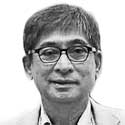
Earning Our Tomorrow
By Philip Ella Juico

After close to six years of “retirement” from sports column writing at the Philippine Star, I am back but this time in the op ed pages of this paper.
Fortunately, I am not new to writing for BusinessWorld. I have been here before as an occasional columnist for the De La Salle Graduate School of Business’ monthly column, “View from Taft.” I was Dean of the Graduate School of Business then and one of my tasks was to write a column to commemorate important national events: the anniversary of People Power 1, Independence Day, commemoration of the August 21, 1983 execution of Ninoy Aquino, recollections on the proclamation of martial law, National Heroes Day, and business and education management matters.
When I retired as dean in 2008, I still continued to teach as part time faculty. I would sometimes be called upon to write about the same important events of national interest. While writing my business column for De La Salle, I also wrote for two broadsheets’ business pages, and continued writing a sports column called “Sports for All” for the Philippine Star from February 2002 up to March 2015 when I was elected president of the Philippine Athletics Track and Field Association (PATAFA). My sports editor advised me of a potential conflict of interest between being head of the association that governs the sport of athletics track and field, the centerpiece event of any Olympics, multi-sport gathering.
That was not the first time the Star had pointed out a conflict of interest. Earlier in 1995, when President Fidel V. Ramos appointed me as chairman of the Philippine Sports Commission, my sports editor Lito Tacujan, gently invoked a policy of the Star prohibiting government officials from writing columns in the Star. Lito was a friend from way back in the early 1970s when I was asked to write about an international football tournament by the Philippine Herald. Lito and I were together at the Herald with the late Iking Gonzalez as our editor.
My weekly sports column writing actually started in 1989 when the late Betty Go-Belmonte asked me to write for the Star. I had just resigned from my post as Secretary of Agrarian Reform after paying a heavy public price for making the Comprehensive Agrarian Reform Program (CARP) the genuine social justice program that it was intended to be. There were too many powerful forces that threw roadblocks and installed land mines all over the place. People whose participation was crucial to CARP’s orderly implementation were the first ones to sabotage it.
After this brief trip down memory lane, we are here to deal with the here and now, with all the confusing issues ranging from the pandemic and how it has impacted the economy, human behavior, Government, food production and security, livelihood, banking practices and lending policies, and its other serious consequences. We shall, of course, also deal with our territorial integrity, the protection and promotion of democracy, governance and accountability issues, business trends and new ideas that will affect daily lives.
A prime topic for discussion is the Archer Talks Forum that I, together with De La Salle High School class of 1965 and college 1970 had the privilege of organizing on May 12. Archer Talks is an inclusive forum that provides an opportunity for the honest, objective, dispassionate, and respectful discussion of matters of personal and professional interest.
The bi-monthly forum had as its first speaker retired Senior Associate Justice Antonio Carpio who provided and informative and instructive update on the West Philippine Sea.
The second forum, held last Saturday, had Monetary Board member and former Secretary of Socio-economic Planning and NEDA director general, Dr. Felipe Medalla discussing the Philippine economy before, during, and after the pandemic. The main message of Medalla (who earned his doctorate in economics at Northwestern University) was “vaccinate and stimulate.” The former dean of the University of the Philippines School of Economics and cum laude graduate of Economics and Accounting at De La Salle, expressed frustration at government passing laws and implementing programs to stimulate economic activity and spending while at the same time locking down whole areas and restricting business activity.
Dr. Luis Dumlao, the forum’s second speaker, discussed economic trends over the years. At the latter part of his talk, he provided examples of successful social enterprises in agriculture.
Dr. Dumlao, who is Dean of the John Gokongwei School of Management at Ateneo, cited the late John Gokongwei for creating a conglomerate that employs thousands practically totally from borrowed funds.
At this point, readers may ask what is the meaning of the title of this column: “Earning Our Tomorrows.”
The title comes from a poem by British-born American poet Edward Albert Guest. It is entitled, “Have You Earned Your Tomorrow?”
The poem went viral some weeks ago. It was featured in a video that had motivational speaker Simerjeet Singh reciting portions of the poem which I will quote later.
For now, I will retell the thoughts of Heraclitus, the Greek philosopher: “What you choose; what you think; what you do is what you become”
Singh quotes Guest, “as you close your eyes in slumber, do you think that God would say ‘you have earned one more tomorrow by the work you did today?’…. Did you waste the day or lose it? Did you leave a trail of kindness or a scar of discontent? As you close your eyes in slumber, do you think God would say, ‘you have earned one tomorrow by the work you did today.’”
Folks, let’s earn our tomorrow.
Philip Ella Juico’s areas of interest include the protection and promotion of democracy, free markets, sustainable development, social responsibility and sports as a tool for social development. He obtained his doctorate in business at De La Salle University. Dr. Juico served as Secretary of Agrarian Reform during the Corazon C. Aquino administration.